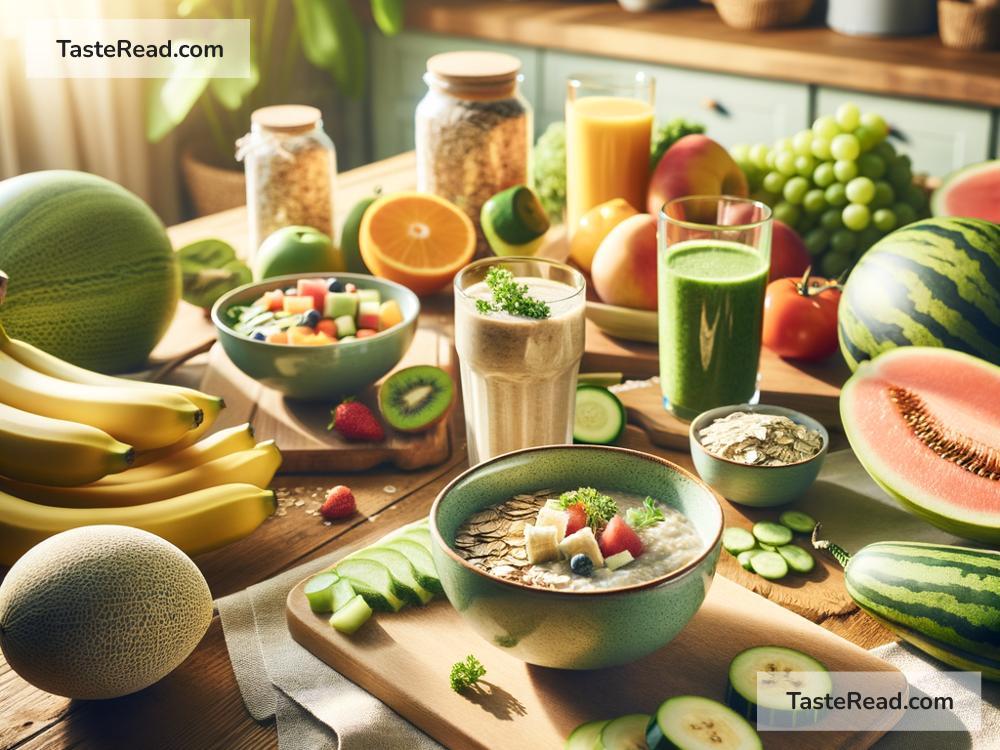Foods That Support Esophageal Health: Simple and Effective Choices
The esophagus is a long, muscular tube that carries food and liquids from your mouth to your stomach. While we often take this part of the body for granted, it’s essential to keep it healthy, as the esophagus plays a vital role in digestion. Sometimes, issues like acid reflux, heartburn, or esophagitis (inflammation of the esophagus) can arise if the esophagus is under stress. Fortunately, the right diet can help keep it healthy, prevent discomfort, and even soothe existing issues. In this article, we’ll cover foods that support esophageal health, all in simple language.
Why Diet Matters for Esophageal Health
Your esophagus is especially vulnerable to irritation and damage from stomach acid. When you eat foods that promote digestion and reduce inflammation, you make life easier for this hard-working muscle. Some foods help prevent acid reflux, while others assist in repairing tissue or reducing irritation. By eating the right combinations, you can give your esophagus the support it needs to stay healthy.
Foods That Are Gentle on the Esophagus
If you want to avoid irritation, it’s crucial to choose foods that are soft, gentle, and soothing. These foods can help calm the digestive system and reduce the risk of acid reflux.
1. Oatmeal
Oatmeal is a great breakfast choice for esophageal health. It’s high in fiber, which can help keep digestion smooth without triggering acid reflux. Oats are also gentle on the stomach, preventing the kinds of irritation that might otherwise impact the esophagus.
2. Bananas
Bananas are soft, low-acid fruits that make an excellent snack. Because they are easy to digest and don’t cause acid reflux, they are one of the best fruits to support esophageal health. Plus, bananas are rich in potassium, which helps keep your muscles—including the esophagus—working properly.
3. Applesauce
Unlike raw apples, which can occasionally irritate an inflamed esophagus, applesauce is smooth, soft, and easy to eat. It provides vitamins and antioxidants without causing acid buildup, making it a great snack or dessert choice.
4. Mashed Potatoes (Plain)
Mashed potatoes, especially without butter or heavy cream, are gentle on the esophagus and stomach. They provide easily digestible carbohydrates that won’t trigger acid reflux or heartburn. Sweet potatoes are also a great option.
Foods with Anti-Inflammatory Benefits
If your esophagus feels irritated or inflamed, including anti-inflammatory foods in your diet can help. The following choices may reduce swelling and soothe discomfort.
1. Green, Leafy Vegetables
Spinach, kale, and other leafy greens are packed with nutrients while being low in fat and acid. These vegetables can help reduce inflammation, support digestion, and provide vitamins that promote overall health.
2. Cucumber
Cucumbers are low-acid vegetables that help cool the esophagus. Their high water content also keeps your body hydrated, which can further aid digestion and reduce irritation.
3. Ginger
Ginger is a natural anti-inflammatory that has been used for centuries to soothe digestion. You can add fresh ginger to your dishes or make ginger tea to calm the esophagus and stomach.
4. Turmeric
Another anti-inflammatory ingredient is turmeric, often used in cooking or taken as tea. Its active component, curcumin, helps reduce swelling in the body, including the esophagus.
Foods That Help Prevent Acid Reflux
Acid reflux happens when stomach acid flows backward into the esophagus, causing irritation and a burning sensation. To prevent this, it’s important to eat foods that are low in fat and acidity while avoiding anything spicy or greasy.
1. Whole Grain Bread
Whole grain bread is easy to digest and supports healthy digestion. Unlike refined carbohydrates found in white bread, whole grains keep the stomach from overproducing acid. It’s also a great source of fiber.
2. Melons
Melons like honeydew, cantaloupe, and watermelon are low in acid and high in vitamins and water content. They’re gentle on the digestive system and work well as a refreshing snack or dessert.
3. Lean Proteins
Choosing lean proteins, such as grilled chicken or fish, can help prevent acid reflux. Fatty cuts of meat tend to cause heartburn, so sticking to lean options is better for your esophagus.
4. Unsweetened Yogurt
Yogurt that doesn’t contain added sugar can be soothing for acid reflux. Its probiotics help promote good digestion, and its mild nature makes it easy on the esophagus.
Foods That Promote Healing and Repair
If your esophagus has already been irritated, certain foods can help repair damage and promote healing.
1. Bone Broth
Bone broth is rich in collagen and nutrients that help repair tissue and promote digestive health. It’s also soothing and easy to swallow, making it great for an inflamed esophagus.
2. Aloe Vera Juice
Aloe vera juice has natural soothing properties that may reduce inflammation and promote healing in the esophagus after irritation.
3. Avocados
Avocados contain healthy fats that can help repair tissue without causing acid reflux. Unlike other fats, they’re gentle on the stomach and esophagus.
Foods to Avoid
While we’ve covered many foods that are good for esophageal health, it’s also important to know what to avoid. Foods that are high in acid, spicy, greasy, or sugary can irritate the esophagus. Common examples include:
– Citrus fruits (like oranges and grapefruits)
– Tomato products (sauce, ketchup)
– Fried or fatty foods
– Caffeine
– Chocolate
Conclusion
Your esophagus is a vital part of your digestive system, and keeping it healthy is easier than you might think. By eating the right foods—especially those that are gentle, anti-inflammatory, and low in acid—you can support its function and prevent discomfort. Incorporate oatmeal, bananas, leafy greens, ginger, lean proteins, and other nutritious options into your diet, and steer clear of foods that could irritate your esophagus. A balanced, esophagus-friendly diet not only feels good to eat but also supports your overall health and well-being.


